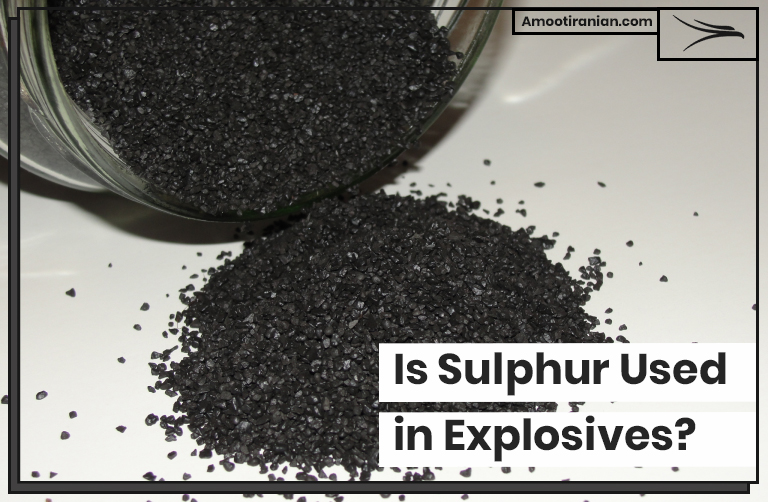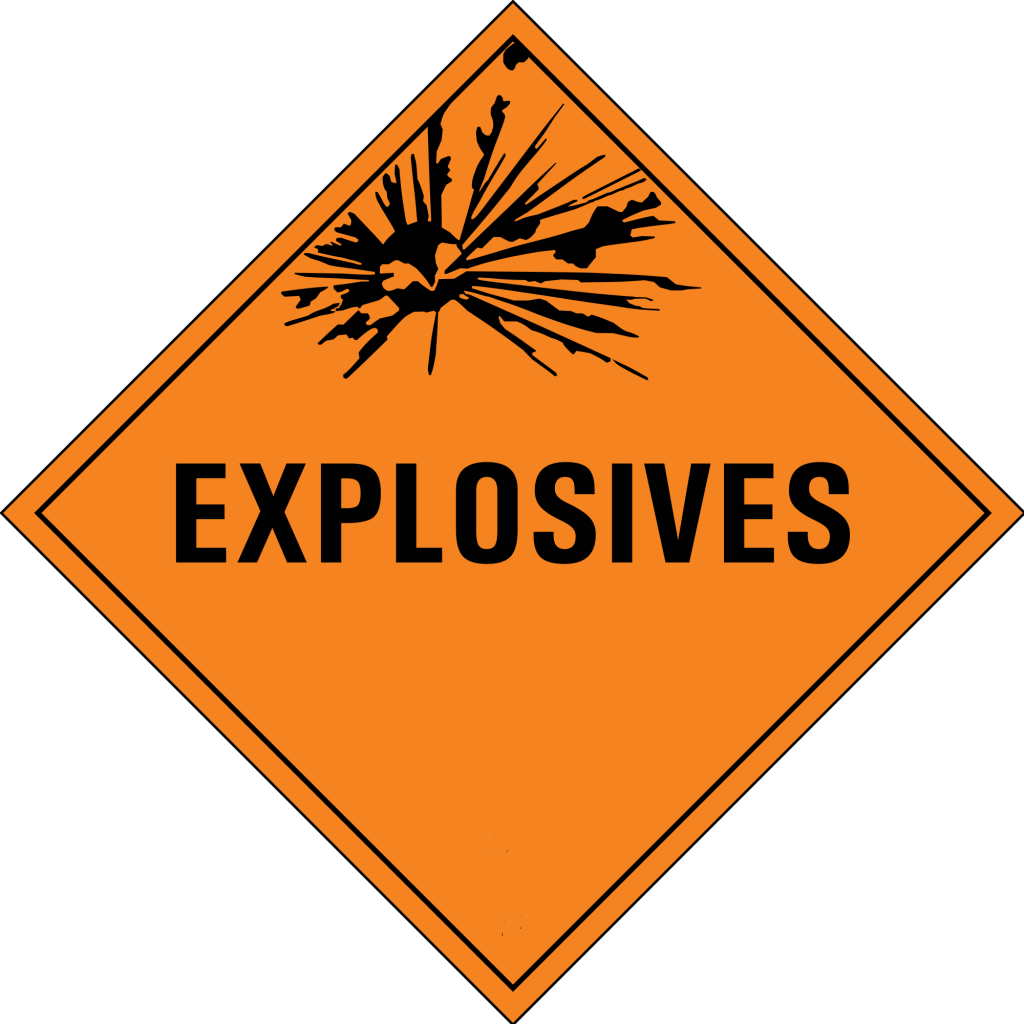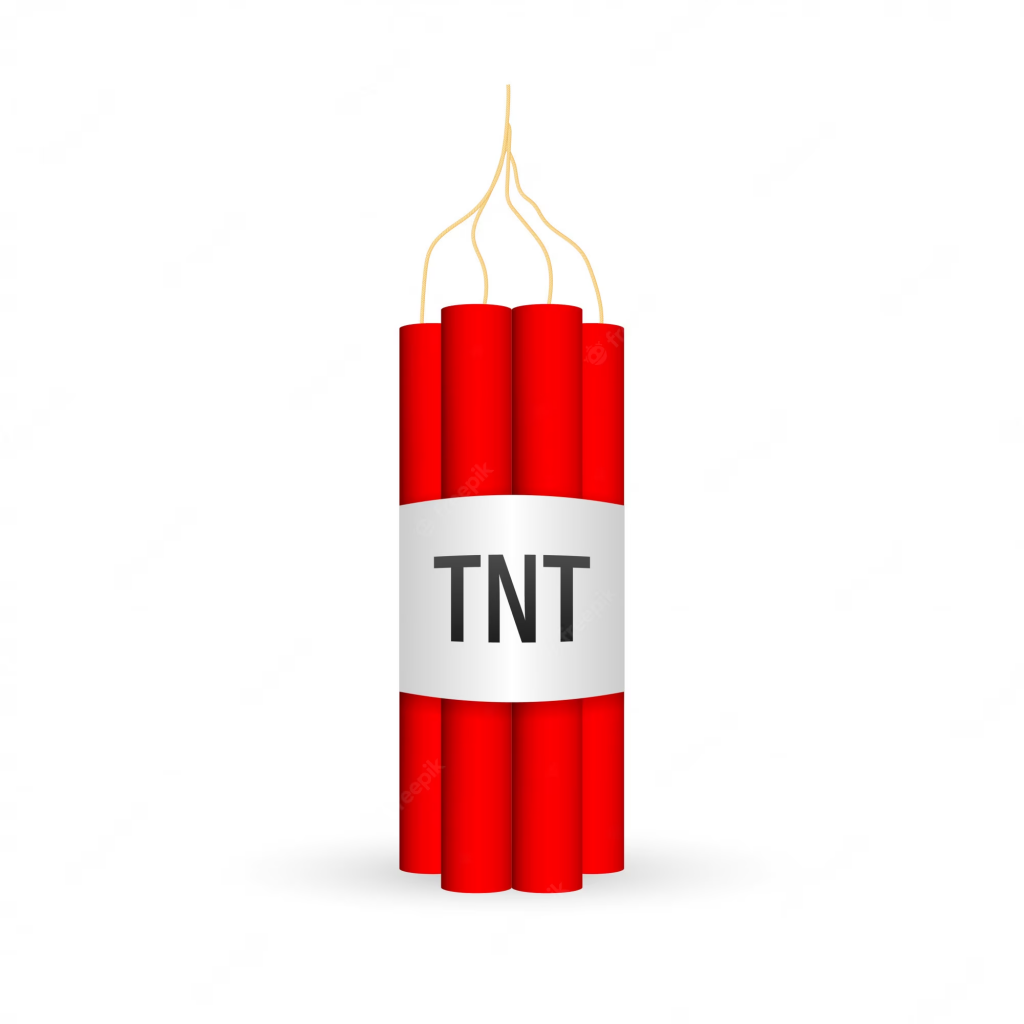.

.
.

Sulfur is used in some types of explosives, such as black powder and sulfuric acid explosives.
.
.
What Explosives Use Sulfur?
Sulfur is a common component in many types of explosives, and it is often used as an oxidizing agent to support the explosive reaction.
.
Some of the common explosives that use sulfur as a key ingredient include:
| Explosive | Composition |
| Black Powder | Potassium nitrate, charcoal, sulfur |
| TNT | Trinitrotoluene, sulfur |
| C-4 | RDX, plastic binder, sulfur |
| Gunpowder | Charcoal, sulfur, potassium nitrate |
| ANFO | Ammonium nitrate, fuel oil, sulfur (optional) |
It is important to note that the use and handling of explosives is highly regulated and requires specialized training and permits. It should only be done by trained professionals in controlled environments to prevent accidents and injuries.
.
Sulfur in Black Powder
Sulfur is an essential component in black powder, which is a type of explosive mixture used as a propellant in firearms, fireworks, and other applications.
.
Black powder is typically made up of three main components:
- potassium nitrate (saltpeter)
- charcoal
- sulfur
.
The sulfur content in black powder typically ranges from 10-20% by weight.
.
Sulfur plays a critical role in black powder’s explosive properties by serving as an oxidizing agent.
When black powder is ignited, the sulfur reacts with the other components to release a large amount of energy rapidly, creating a rapidly expanding gas that propels the projectile or creates the desired visual or auditory effect in fireworks.
The precise proportions of sulfur, potassium nitrate, and charcoal in black powder can affect its properties, such as burn rate, energy output, and stability. Different formulations of black powder are used for different applications, such as low-powered or high-powered firearms, small or large fireworks, or signal flares.
.
Sulfur in TNT

Sulfur is an important component in the explosive material known as trinitrotoluene (TNT), which is a high explosive used in military and industrial applications. TNT typically contains between 1% to 10% sulfur by weight.
The addition of sulfur to TNT has several important effects on its properties. Sulfur can help to stabilize TNT and make it less sensitive to shock and friction, which is important for safe handling and transport. Additionally, sulfur can help to improve the brisance of TNT, which is the ability of the explosive to shatter or fragment materials upon detonation.
When TNT is detonated, the heat and pressure of the explosion causes the sulfur atoms in the TNT molecule to react with oxygen from the air, forming sulfur dioxide gas.
This reaction contributes to the energy release and volume of the explosion, and also produces a characteristic odor of burnt matches.
Overall, sulfur plays an important role in the properties of TNT, and its addition to TNT can improve its stability, sensitivity, and explosive power.
.
Sulfur in C-4

Sulfur is a key component of the plastic explosive known as Composition C-4 (C-4), which is a high explosive commonly used in military and law enforcement applications. C-4 typically contains about 2% to 5% sulfur by weight.
Sulfur is added to C-4 to improve its stability and sensitivity to detonation. The sulfur in C-4 helps to lower its melting point, which makes it easier to shape and mold into various forms.
Additionally, sulfur helps to make C-4 more shock-sensitive, meaning that it can be detonated more easily by an impact or a shock wave.
The main explosive component in C-4 is RDX (cyclotrimethylene trinitramine), which is a highly explosive compound that is stabilized by the addition of plasticizers and other ingredients.
The sulfur in C-4 also contributes to its explosive power, as it acts as an oxidizer and enhances the energy release upon detonation.
Overall, sulfur is an important component in C-4, and its addition to the explosive mixture can improve its stability, sensitivity, and explosive power.
.
Sulfur in Gunpowder

.
Sulfur is a critical component in gunpowder, which is an explosive mixture that has been used for centuries as a propellant in firearms and artillery.
Gunpowder, also known as black powder, typically contains three main components:
- sulfur
- charcoal
- potassium nitrate (saltpeter)
The sulfur in gunpowder serves as a fuel and helps to promote the combustion of the other components. When gunpowder is ignited, the sulfur reacts with the potassium nitrate to produce potassium sulfate, and the charcoal provides the necessary carbon for the reaction.
The high temperatures and pressures generated by this reaction produce a rapidly expanding gas that propels the bullet or shell.
The sulfur content in gunpowder typically ranges from 10% to 20% by weight, and the exact proportion of sulfur, charcoal, and potassium nitrate can affect the burn rate, energy output, and stability of the gunpowder.
Different formulations of gunpowder are used for different applications, such as low-powered or high-powered firearms, and the use of different additives and processing techniques can further modify its properties.
Overall, sulfur plays a critical role in the properties of gunpowder, and its addition to the explosive mixture is essential for its proper functioning as a propellant.
.
Point: Black Powder vs. Gunpowder
Black powder and gunpowder are two terms that are often used interchangeably to refer to the same explosive mixture that has been used for centuries as a propellant in firearms and artillery. However, technically speaking, black powder is a specific type of gunpowder that has a distinct composition and properties.
Black powder is typically made up of three main components: potassium nitrate (saltpeter), charcoal, and sulfur. The sulfur content in black powder typically ranges from 10-20% by weight.
When black powder is ignited, the sulfur reacts with the other components to release a large amount of energy rapidly, creating a rapidly expanding gas that propels the projectile or creates the desired visual or auditory effect in fireworks.
Gunpowder, on the other hand, can refer to a broader category of explosive mixtures that are used as propellants. Gunpowder can include various formulations that contain different ingredients and proportions, and may or may not include sulfur as a component.
For example, modern smokeless powders, which are commonly used in firearms today, typically do not contain sulfur.
In summary, black powder is a specific type of gunpowder that contains potassium nitrate, charcoal, and sulfur, while gunpowder can refer to a broader category of explosive mixtures used as propellants that may or may not contain sulfur.
.
Sulfur in ANFO
ANFO, or Ammonium Nitrate Fuel Oil, is an explosive mixture that is widely used in mining, quarrying, and construction industries. Unlike gunpowder or black powder, ANFO does not contain sulfur as a component.
.
ANFO is made up of two main components: ammonium nitrate and fuel oil (typically diesel).
Ammonium nitrate is an oxidizer that provides the oxygen necessary for the combustion of the fuel oil.
When ANFO is detonated, the fuel oil reacts with the ammonium nitrate to produce a large volume of hot gases that create a shockwave that can be used for various applications, such as breaking rock or earth.
While sulfur is not typically used as an ingredient in ANFO, it is sometimes added as a trace element to improve the performance of the explosive.
For example, small amounts of sulfur can be added to ANFO to help reduce the sensitivity to moisture or to increase the energy release upon detonation.
Overall, sulfur is not a primary component in ANFO, but it may be added in small amounts as a trace element to modify its properties.
.
Is Sulphur Powder an Explosive?
Sulfur powder is not an explosive on its own. However, it can be a component in explosive mixtures, as it can act as an oxidizing agent and enhance the reactivity of other chemicals.
.
Sulfur is often used as an ingredient in black powder, an early explosive mixture that is composed of potassium nitrate, charcoal, and sulfur. Additionally, sulfur can be added to other explosive mixtures, such as TNT and ANFO, to improve their stability and sensitivity to shock.
But on its own, sulfur powder is not explosive and does not pose a significant risk of explosion.
However, like any fine powder, it can be flammable and can pose a fire hazard under certain conditions, so it should be handled and stored properly to avoid any potential risks.
.

Writer: Nafisa Majid Zadeh
Sales Specialist at Amoot Iranian Trading Company
